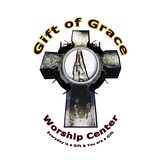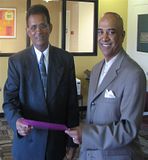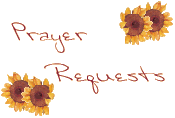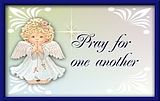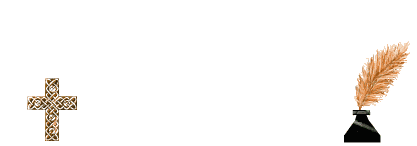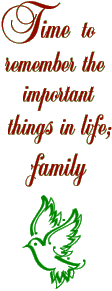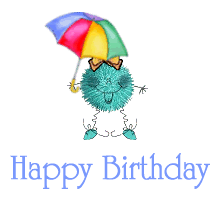Tuesday, March 29, 2011
Tuesday of the Second Week of Lent
In Exodus 16:1-18, 35, the Israelites, free at last from the Egyptians, quickly begin to slip into despair. Lacking food, they complain to Moses. In response, God sends them the manna (bread) from heaven, which will sustain them throughout the 40 years that they will spend wandering in the desert before entering the Promised Land.
Free at last from the Egyptians, the Israelites quickly begin to slip into despair. Lacking food, they complain to Moses. In response, God sends them the manna (bread) from heaven, which will sustain them throughout the 40 years that they will spend wandering in the desert before entering the Promised Land.
The manna, of course, represents the true bread from heaven, the Body of Christ in the Eucharist. And just as the Promised Land represents heaven, the Israelites' time in the desert represents our struggles here on earth, where we are sustained by the Body of Christ.
Exodus 16:1-18, 35
And they set forward from Elim, and all the multitude of the children of Israel came into the desert of Sin, which is between Elim and Sinai: the fifteenth day of the second month, after they came out of the land of Egypt.
And all the congregation of the children of Israel murmured against Moses and Aaron in the wilderness. And the children of Israel said to them: Would to God we had died by the hand of the Lord in the land of Egypt, when we sat over the flesh pots, and ate bread to the full. Why have you brought us into this desert, that you might destroy all the multitude with famine?
And the Lord said to Moses: Behold I will rain bread from heaven for you: let the people go forth, and gather what is sufficient for every day: that I may prove them whether they will walk in my law, or not. But the sixth day let them provide for to bring in: and let it be double to that they were wont to gather every day.
And Moses and Aaron said to the children of Israel: In the evening you shall know that the Lord hath brought you forth out of the land of Egypt: And in the morning you shall see the glory of the Lord: for he hath heard your murmuring against the Lord: but as for us, what are we, that you mutter against us? And Moses said: In the evening the Lord will give you flesh to eat, and in the morning bread to the full: for he hath heard your murmurings, with which you have murmured against him, for what are we? your murmuring is not against us, but against the Lord.
Moses also said to Aaron: Say to the whole congregation of the children of Israel: Come before the Lord: for he hath heard your murmuring. And when Aaron spoke to all the assembly of the children of Israel, they looked towards the wilderness: and behold the glory of the Lord appeared in a cloud.
And the Lord spoke to Moses, saying: I have heard the murmuring of the children of Israel: say to them: In the evening you shall eat flesh, and in the morning you shall have your fill of bread: and you shall know that I am the Lord your God.
So it came to pass in the evening, that quails coming up, covered the camp: and in the morning, a dew lay round about the camp. And when it had covered the face of the earth, it appeared in the wilderness small, and as it were beaten with a pestle, like unto the hoar frost on the ground. And when the children of Israel saw it, they said one to another: Manhu! which signifieth: What is this! for they knew not what it was. And Moses said to them: This is the bread, which the Lord hath given you to eat.
This is the word, that the Lord hath commanded: Let every one gather of it as much as is enough to eat: a gomor for every man, according to the number of your souls that dwell in a tent, so shall you take of it.
And the children of Israel did so: and they gathered, one more, another less. And they measured by the measure of a gomor: neither had he more that had gathered more: nor did he find less that had provided less: but every one had gathered, according to what they were able to eat.
And the children of Israel ate manna forty years, till they came to a habitable land: with this meat were they fed, until they reached the borders of the land of Chanaan.
In Exodus 16:1-18, 35, the Israelites, free at last from the Egyptians, quickly begin to slip into despair. Lacking food, they complain to Moses. In response, God sends them the manna (bread) from heaven, which will sustain them throughout the 40 years that they will spend wandering in the desert before entering the Promised Land.
Free at last from the Egyptians, the Israelites quickly begin to slip into despair. Lacking food, they complain to Moses. In response, God sends them the manna (bread) from heaven, which will sustain them throughout the 40 years that they will spend wandering in the desert before entering the Promised Land.
The manna, of course, represents the true bread from heaven, the Body of Christ in the Eucharist. And just as the Promised Land represents heaven, the Israelites' time in the desert represents our struggles here on earth, where we are sustained by the Body of Christ.
Exodus 16:1-18, 35
And they set forward from Elim, and all the multitude of the children of Israel came into the desert of Sin, which is between Elim and Sinai: the fifteenth day of the second month, after they came out of the land of Egypt.
And all the congregation of the children of Israel murmured against Moses and Aaron in the wilderness. And the children of Israel said to them: Would to God we had died by the hand of the Lord in the land of Egypt, when we sat over the flesh pots, and ate bread to the full. Why have you brought us into this desert, that you might destroy all the multitude with famine?
And the Lord said to Moses: Behold I will rain bread from heaven for you: let the people go forth, and gather what is sufficient for every day: that I may prove them whether they will walk in my law, or not. But the sixth day let them provide for to bring in: and let it be double to that they were wont to gather every day.
And Moses and Aaron said to the children of Israel: In the evening you shall know that the Lord hath brought you forth out of the land of Egypt: And in the morning you shall see the glory of the Lord: for he hath heard your murmuring against the Lord: but as for us, what are we, that you mutter against us? And Moses said: In the evening the Lord will give you flesh to eat, and in the morning bread to the full: for he hath heard your murmurings, with which you have murmured against him, for what are we? your murmuring is not against us, but against the Lord.
Moses also said to Aaron: Say to the whole congregation of the children of Israel: Come before the Lord: for he hath heard your murmuring. And when Aaron spoke to all the assembly of the children of Israel, they looked towards the wilderness: and behold the glory of the Lord appeared in a cloud.
And the Lord spoke to Moses, saying: I have heard the murmuring of the children of Israel: say to them: In the evening you shall eat flesh, and in the morning you shall have your fill of bread: and you shall know that I am the Lord your God.
So it came to pass in the evening, that quails coming up, covered the camp: and in the morning, a dew lay round about the camp. And when it had covered the face of the earth, it appeared in the wilderness small, and as it were beaten with a pestle, like unto the hoar frost on the ground. And when the children of Israel saw it, they said one to another: Manhu! which signifieth: What is this! for they knew not what it was. And Moses said to them: This is the bread, which the Lord hath given you to eat.
This is the word, that the Lord hath commanded: Let every one gather of it as much as is enough to eat: a gomor for every man, according to the number of your souls that dwell in a tent, so shall you take of it.
And the children of Israel did so: and they gathered, one more, another less. And they measured by the measure of a gomor: neither had he more that had gathered more: nor did he find less that had provided less: but every one had gathered, according to what they were able to eat.
And the children of Israel ate manna forty years, till they came to a habitable land: with this meat were they fed, until they reached the borders of the land of Chanaan.

